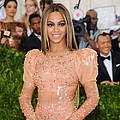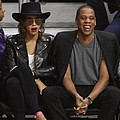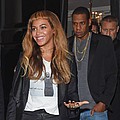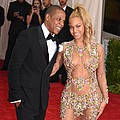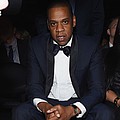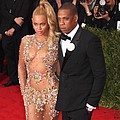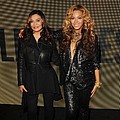Rapper Jay Z is facing an $18 million (£12 million) lawsuit over his signature cologne.
Bosses at Perfumania Holdings Inc. claim the 99 Problems star failed to promote the Gold Jay Z fragrance while collecting $2 million (£1.3 million) in royalties.
"Sales of Gold Jay Z have declined considerably because of Jay Z's and his teams (sic) lack of interest in supporting and promoting his own brand..., while collecting a handsome guaranteed minimum royalty as well as Perfumania common stock," the suit reads.
The cologne launched in 2014 and was the best-selling celebrity fragrance the following year (15). However, sales have reportedly dropped and bosses at the company suggest it is because the rap mogul refused to make an appearance on U.S. breakfast show Good Morning America, turned down an interview and cover story for Women's Wear Daily and would not appear for a promotional event at Macy's, according to the New York Post.
Executives at the company are seeking royalties and $16 million (£10.7 million) in damages.
The rapper has found himself dealing with a number of legal issues in recent months, after he and wife Beyonce Knowles won a copyright infringement lawsuit over their song Drunk in Love in December (15).
Monika Miczura Juhasz, known professionally as Mitsou, sued Beyonce, Jay Z and producer Timbaland in December 2014, claiming audio of her performing Bajba, Bajba Pelem - a traditional Roma folk song she learned from her grandmother - back in 1995 was taken and "digitally manipulated without her permission" and used during the production of Drunk in Love.
She asked a New York judge to grant her unspecified damages and demanded the track be banned from the airwaves unless her vocals were removed from the song, but Manhattan Supreme Court Justice Cynthia Kern dismissed the case, ruling Mitsou couldn't use the state's Civil Rights Law because it only pertains to a "name, portrait, picture or voice used for advertising or trade purposes without written consent".
"Courts have consistently held that Civil Rights Law does not apply to works of literary and artistic expression," she wrote at the time.
"It is undisputed that the Drunk in Love song and video are works of artistic expression and, pursuant to well established law, they are therefore exempted from the Civil Rights Law."
Jay-Z news


